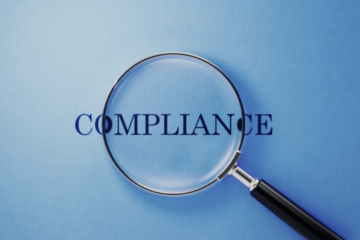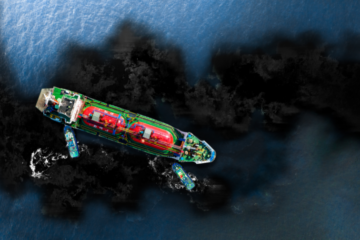CHARTERERS & LIABILITY
How are charterers exposed to liabilities and how can they benefit from a charterer’s liability insurance?
Once having agreed a contract, whereby a ship is made available, the identity of that party is as a CHARTERER.
Liabilities may vary but cannot be eliminated or ignored. A voyage charterer may be less exposed than a time charterer.
A commodity trader or cargo owner will only contract for the use of the vessel. However, a ship and cargo operator is not only contracting for the use of the vessel but also with the cargo interest.
In all circumstances, it will be necessary to make a proper analysis of the charterers’ activity and identity before a tailored and competitive proposal can be made.
The chartering of ships exposes the charterer to certain liabilities, which may differ, depending on the activity and the identity of the charterer.
The general principles of liabilities facing a charterer can be summarized as follows:
These are the liabilities without reference to a contract, which a Charterer may encounter from his identity of being the charterer of a ship used to carry cargo (or for services provided with a non-cargo carrying ship).
INSURANCE COVERAGE
Legal liabilities will be covered during the period of insurance of the chartered ship in accordance with the policy wording of the insurer.
CONTRACTUAL LIABILITIES
In most cases, the contract is a Charter Party. Many of the Charter Parties being used are the BIMCO-approved forms, however, it is common practice that the parties are changing the standard forms with alterations in the printed text and additional rider clauses. It is therefore not possible to determine the exact liability regime of the Charterer based on the standard form. It will be necessary to scrutinize each Charter Party before the correct analysis of the Charterers’ contractual liabilities can be made.
With the carriage of goods by sea every shipment will have one or more Bills of Lading, being a receipt for the cargo delivered on board, but it is also evidence of a contract between the carrier and the owner of the cargo. In the third place, the Bill of Lading is a document of title (the holder of the Bill of Lading is entitled to delivery of the goods).
The basic liability regime of a bill of lading is regulated by law and international, ratified conventions, such as Hague (Visby) Rules, Hamburg Rules, and US Cogsa. Any clauses in Bills of Lading more favorable to the carrier than regulated by law or conventions, will be null and void and overruled by the compulsory law of the country having jurisdiction.
The identity of the carrier is determined by showing the name of the carrier on the face of the Bill of Lading and/or by the signature of the bill of lading.
Cargo is carried by a ship with an owner and a master, who are obliged to keep the ship in a seaworthy condition. Despite the parties in the Charter Party chain, the shipowner should always be the carrier under the bill of lading. A signature by the Master or by authority on behalf of the Master makes the Shipowner the carrier and as such it is called an Owner’s Bill of Lading.
CARGO LIABILITIES
In Bills of Lading, the liabilities for damages or losses to cargo are regulated by the mandatory application of international conventions and local laws. In most countries this will be the Hague (Visby) Rules or the Hamburg Rules. Many countries have incorporated these rules in their local law
In charter parties, the parties have freedom of contract. It will therefore be necessary to scrutinize every single charter party before determining the liability about cargo claims between the parties.
Other than the bills of lading and charter party clauses a further investigation is necessary about the role of the charterer, the shipowner, and the master during the loading and discharging operations. Certain interventions may shift the liability and it is also important to find out which party has ordered the stevedores to load and unload the cargo.
DAMAGE TO HULL LIABILITIES
In principle the charterers are liable for damages to the vessel caused by the cargo or by stevedores during loading and unloading, caused by an unsafe port or berth, caused by off spec bunkers when the bunkers were ordered by the charterer.
It is common to find in Charter Parties a clause that stevedores damages must be settled directly between the shipowner and the stevedores. If that is practically possible it will solve the matter, however, if the stevedores refrain from acting, the charterer will remain ultimately liable for these damages.
INSURANCE COVERAGE
Contractual liabilities are NOT automatically covered. Every Charterers Liability insurer will impose restrictions, which must be carefully investigated. The general rule is that a contract must be approved by the Insurer prior to a contractual liability risk is attaching.
On Bills of Lading the standard wording in a Charterers Liability insurance is that the Charterer shall not appear as Carrier on the Bills of Lading, which shall be signed by the Master or by authority on behalf of the Master.
Other important restrictions and warranties in a Charterers Liability insurance are:
The period of insurance is restricted in accordance with the period the ship is on charter and the laden voyages are restricted between the ports of the seagoing legs. Pre- and on carriage, or transshipment, lightering or storage, is not automatically covered.
The carriage of cargo on deck is not automatically covered.
Material changes in activity or risk profile during the policy year must be reported and approved by the Insurer prior to additional risks attaching.
Warranted that the cargo is:
- Loaded, stowed, etc. in accordance with IMO codes and regulations.
- Approved under the Charter Party.
- In case of dangerous cargo, carried with the knowledge and consent of the Master and/or Owners and approved under the Charter Party.
Refrain from chartering or trading a vessel, which:
- is loading or carrying Cargo in breach of the guidelines and/or requirements of the IMDG, IBC or IMSBC Code, or any other applicable regulations or conventions,
- is unfit or unsuitable for the intended trade.
- is engaged in a trade or on a voyage which is imprudent, illegal, or unsafe.
- the carriage is in breach of class requirements.
Exercise reasonable care to check the solvency and reputation of contract parties.
Preserve any right of recourse, refrain from admitting liability, refrain from waiving rights and settle any claims or costs without prior approval of the Insurer.
Notify claims or liabilities promptly and follow the instructions and recommendations of the Insurer in respect of claims and costs covered under the insurance.
Other than providing coverage IMU is primarily recognized as a specialist service provider. Besides coverage, Charterers are also exposed to commercial and operational conflicts for which we provide support and assistance.
Our entire corporation is focused on giving the best services to our clients by training our people to meet all challenges of the maritime adventure with knowledge of the client’s business.
Click here to continue reading about marine liability services.




0 Comments